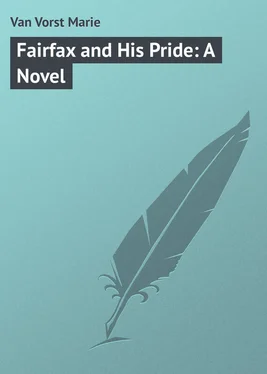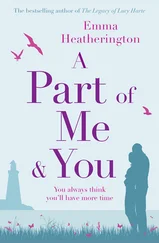Again the scarlet Antony had seen, touched the banker's face. Fairfax limped out of the room. His clothes were so shabby (as he had said a few moments before, he had worked in them like a nigger), that, warm as it was, he wore his overcoat to cover his suit. The coat lay in the hall. Bella and Gardiner had been busy during his visit on their own affairs. They had broken open their bank. Bella's keen ears had heard Antony's remark to her mother about being down on his luck, and her tender heart had recognized the heavy note in his voice. The children's bank had been their greatest treasure for a year or two. It represented all the "serious" money, as Bella called it, that had ever been given them. The children had been so long breaking it open that they had not heard the scene below in the drawing-room.
As Fairfax lifted his coat quickly it jingled. He got into it, thrust his hands in the pockets. They were full of coin. His sorrow, anger and horror were so keen that he was guilty of the unkindest act of his life.
"What's this!" he cried, and emptied out his pockets on the floor. The precious coins fell and rolled on every side. Bella and her little brother, who had hid on the stairs in order to watch the effect of their surprise, saw the disaster, and heard the beloved cousin's voice in anger. The little girl flew down.
"Cousin Antony , how could you? It was for you ! Gardiner and I broke our bank for you. There were ten dollars there and fifty-nine cents."
There was nothing gracious in Fairfax's face as it bent on the excited child.
"Pick up your money," he said harshly, his hand on the door. "Good-bye."
"Oh," cried the child, "I didn't know you were proud like that . I didn't know."
"Proud," he breathed deeply. "I'd rather starve in the gutter than touch a penny in this house."
He saw the flaming cheeks and averted eyes, and was conscious of Gardiner's little steps running down the stairs, and he heard Bella call "Cousin Antony ," in a heart-rent voice, as he opened the door, banged it furiously, and strode out into the street.
He had slept all night in a strained position between a barrel of tallow candles and a bag of potatoes. In spite of the hardness of the potatoes on which he lay and the odour of the candles, he lost consciousness for a part of the night, and when he awoke, bruised and weary, he found the car stationary. As he listened he could not hear a sound, and crawling out from between the sacks in the car, he saw the dim light of early dawn through a crack in the door. Pushing open the sliding door he discovered that the car had stopped on a siding in an immense railroad-yard and that he was the only soul in sight. He climbed out stiffly. On all sides of him ran innumerable lines of gleaming rails. The signal house up high was alight and the green and yellow and white signal lamps at the switches shone bright as stars. Further on he could see the engine-house, where in lines, their cow-catchers at the threshold, a row of engines waited, sombre, inert horses of iron and steel, superb in their repose. Fairfax reckoned that it must be nearly four-thirty, and as he stood, heard a switch click, saw a light change from green to red, and with a rattle and commotion a train rolled in – along and away. On the other side of the tracks in front of him were barrack-like workshops, and over the closed station ran a name in black letters, but it did not inform Fairfax as to his whereabouts except that he was at "West Junction." He made his way across the tracks towards the workshops, every inch of him sore from his cramped ride.
He always thought that on that day he was as mentally unhinged as a healthy young man can be. Unbalanced by hunger, despair and rage, his kindly face was drawn and bore the pallor of death. He was dirty and unshaven, his heavy boot weighed on his foot like lead. Without any special direction he limped across the tracks and once, as he stopped to look up and down the rails on which the daylight was beginning to glimmer, in his eyes was the morbidness of despair. A signalman from his box could see him over the yards, and Fairfax reflected that if he lingered he might be arrested, and he limped away.
Конец ознакомительного фрагмента.
Текст предоставлен ООО «ЛитРес».
Прочитайте эту книгу целиком, купив полную легальную версию на ЛитРес.
Безопасно оплатить книгу можно банковской картой Visa, MasterCard, Maestro, со счета мобильного телефона, с платежного терминала, в салоне МТС или Связной, через PayPal, WebMoney, Яндекс.Деньги, QIWI Кошелек, бонусными картами или другим удобным Вам способом.











